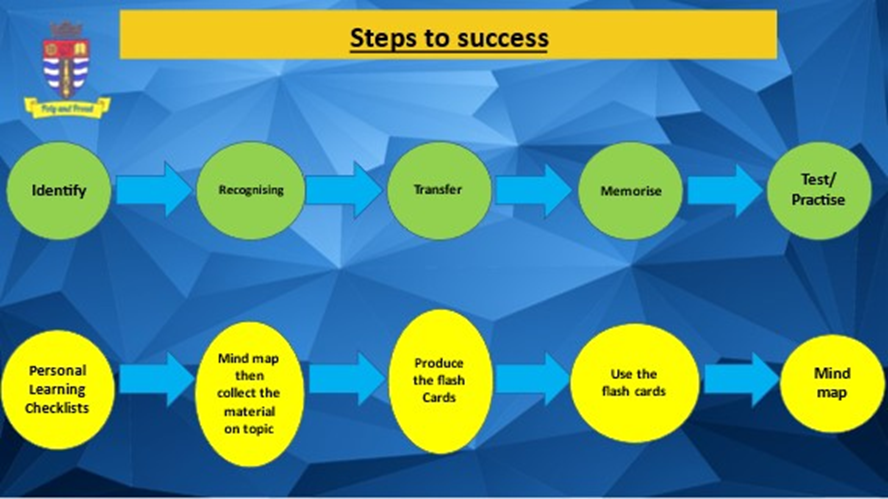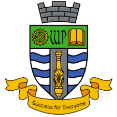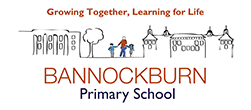Revision
revision maps year 7
- Drama Year 7 Revision Map
- English Language - Descriptive writing
- French Year 7 Revision Map
- Geography Year 7 Revision Map
- Science Part 1 Year 7
- Science Part 2 Year 7
- Spanish Year 7
- English Literature Revision Map - A Midsummer Night's Dream
- English Literature Revision Map - Tempest
- English Year 7 Descriptive writing
revision maps year 8
REVISION MAPS YEAR 9
At Woolwich Polytechnic School we encourage the use of retrieval practice in all lessons and use specific techniques when supporting our students to revise.
We support our students from year 7 on how to revise and why it is important. Planning and a growth mindset are fundamental in developing our students to become independent learners that self-regulate their learning and thinking in a cognitive and metacognitive way.
The Poly have developed their own system, which encourages learning to use some techniques when revising old material. We also believe in planning revision carefully to reduce cognitive overload and timetables are encouraged when preparing for exams. When ‘making it stick’ we apply the following, when applicable in our revision:
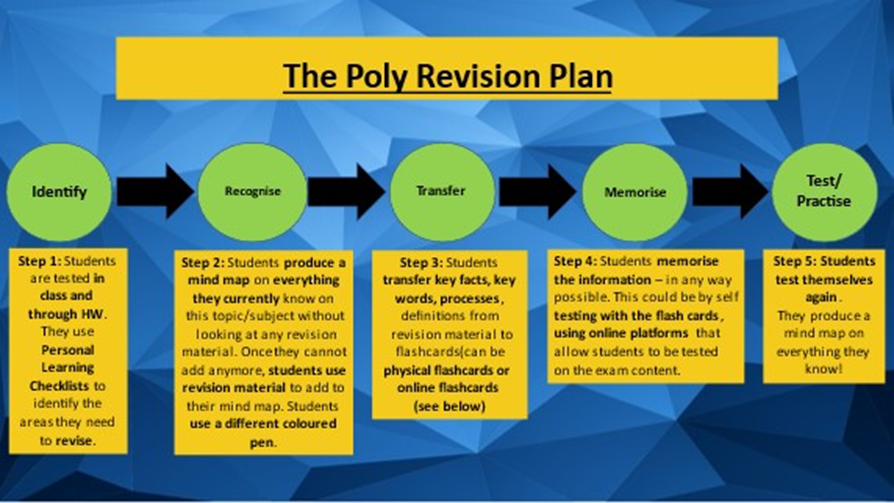
The Process
Step 1: Identify
We encourage students to review PLCs or equivalent with aid to reflect on areas of strengths and areas to develop. In order, students are encouraged to revise from resources provided, teacher guidance and revision material, to focus on areas that need to develop first and progress through to revising stronger learned material.
Step 2: Recognising weaknesses and producing a mind map/ brain dump
Brain dumps/mind maps: This is a classic example of a low effort, high impact task and is scientifically referred to as ‘free recall’. Free recall has been the centre of cognitive research for decades. The ‘brain dump’ phrase was coined by Pooja K.Agarwal, a cognitive scientist and refers to the activity of ‘dumping’ as much information about a topic from long term memory onto a piece of paper.
(Click here to access our mind maps)
Step 3: Transfer
Students produce and prepare flash cards using new, existing, or prepared revision material. At the Poly we believe our flash cards should follow these golden rules:
- Students make them their own.
- They use a mixture of images and words for some flash cards (dual code).
- Write Only One Question Per Card (they do not include multiple facts on the back as this help students remember, this is recognition, not recall!)
- When using the flash cards students say their answers out loud.
- Students flip cards at random and do not revisit in the same order.
- They have a test and practice with a buddy or with parents, family etc.
(Click here to access our flash cards)
Step 4: Memorise
Students practice for a period of allocated time to revise and practice the material. We encourage students to follow these three steps:
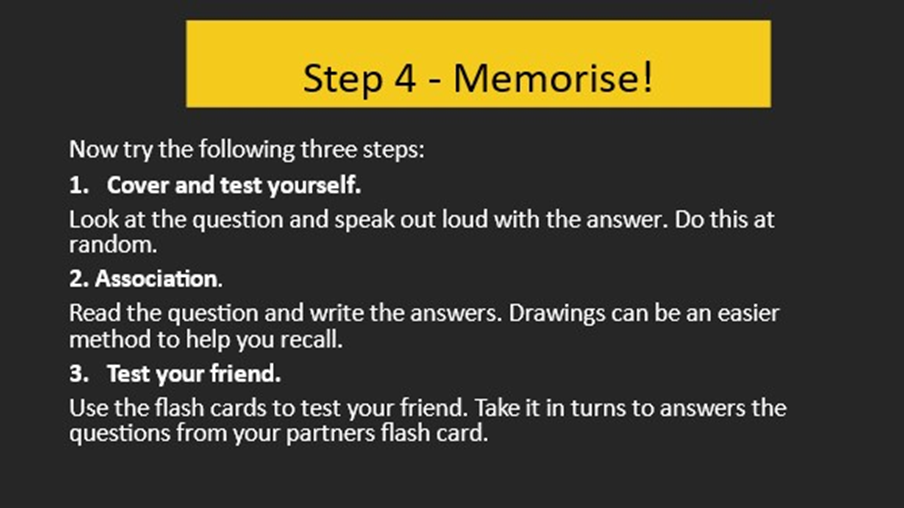
Step 5: Application
The final phase of our revision is to apply. After a period of revision and a period of non-related learning (to review how embedded the material is) we encourage our students to reproduce a mind map without the guidance of any material. The students apply all new and existing knowledge to the new mind map. It is important that students use the PLC and revision material after to review material retrieved. We encourage our students to compare before and after mind maps to reflect on their improvements.
(Click here to access our mind maps)
Our model to success:
